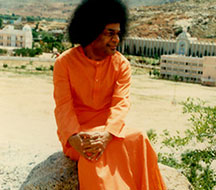
Discriminate to know yourself first: Shankaracharya teachings
Puttaparthi, Sai Kulwanth Hall (Sankranthi )
Description
Man is discriminating everything but himself. Man must examine himself. That is the essence of spirituality. Whichever great and noble men that one goes to, one advised to know one self, to know thy self. Man is forgetting that and asks everyone, “Who are you, Sir? Where are you coming from?” Without knowing who he is and from where he has come, what is the use of knowing where from the other has come? First and foremost, man must enquire: “Who am I?” “From where have I come?” The same has been propagated by Shankaracharya and Tyagaraja. There was a boy who was studying grammar and reciting the Panini principle of grammar:”Dukrunkarane”. He went there and asked, “Boy, what are studying?” The boy replied, “I am reciting the Panini grammar principle.” “What is the result of studying the grammar principle? “I will become a great scholar and a master of grammar.” “What is the result of becoming a master of grammar?” “I will get placement in the court of the King. I will get felicitated. I will receive great gifts.” “What is the benefit of receiving such gifts?” “I and my family will live happily.” “How long will you live?” “I will as long as I live.” “What is the benefit that you get after death?” “That I do not know.” He said. He knew only about living till end of life. Then he told him: Bhaja Govindam, Bhaja Govindam, Govindam bhaja moodhamathe! Bhaja Govindam, Bhaja Govindam, Govindam bhaja moodhamathe! Samprapthe sannihithe kale, Nahi! Nahi! Nahi! Rakshathi dukrunkarane Bhaja Govindam, Bhaja Govindam, Govindam bhaja moodhamathe! Chant His name, chant His name, Chant His name O ignorant minded! When the destined end is near, No grammar principle will rescue you, So chant the Lord’s name!! “O ignorant minded! What is the use of accumulating all this when you do not know what will happen after death?” People cook all food items at home. But how do they make proper use of the food cooked? The cooked food must be served to someone isn’t it? Otherwise what is the use? If the food is stored indefinitely, it will get spoilt and spoilt food is of no use to anybody. The spoilt food is thrown in a corner. How can it be made to benefit the world? Shankaracharya called it foolishness.
Topics
-Discrimination
-
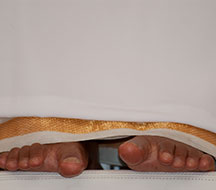
Knowledge with discrimination is important today
00:01:27Bharath has progressed in the field of science. The knowledge of science is useful only when accompanied by a sense of discrimination. Therefore science needs discrimination and also practice. ‘Knowledge without action is useless’, ‘Action without knowledge is foolishness’. Today there is knowledge but no action and where there is action there is no knowledge. So science when accompanied with discrimination will shine brightly. One finds a division or fragmentation in all of aspects of ethical, worldly and spiritual fields leading to destruction and distorted understandings.
-
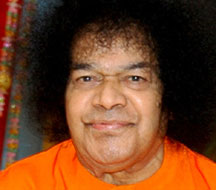
Discriminate before acting, is it good or bad
00:00:55Man sees, experiences many things in the world and also knows about other’s experiences. But the good and bad emanate from one’s own actions and not from others. Therefore first and foremost one must sanctify one’s thoughts. The moment a thought arises one must take time to watch it and distinguish it as right or wrong. One must discard it if one concludes that it is not right thought. But man today does not have that much patience. People try to act on the thought the moment it arises.
-
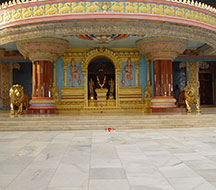
Man should discriminate before acting
00:03:48Embodiments of Love!! One should not waste even a fraction of a second of the most valuable time. Man has forgotten the fact that faith and truth are the basis of life force and in the process has neglected his duty; hence he has been losing the significance of the divine life that he is entitled to. Man today believes that he has accomplished great tasks by wasting time in senseless talk. Seva or service is like a sharp edged knife or a sword. Such a knife (sword) is immensely useful when in the hands of an able person. On the other hand such a knife (sword) causes great danger and harm when it falls into the hands of a person who does not know how to use it. How should one make use of a knife (sword)? For what tasks should it be used? How should one hold the knife or sword? One needs to have the knowledge of such basic things first and foremost. Karma or action too is similar to that!! How should one make use of one’s power to act? Under what circumstances and situations should one use it to justify or sanctify the action? Only the one who can discriminate the good from the bad should undertake action. People who do not understand the ‘karma tatwa’ or the essence of action, degrade the value of seva or service by undertaking work distancing themselves from the selfless service and totally dedicating their time to selfish and self centred motives.
-
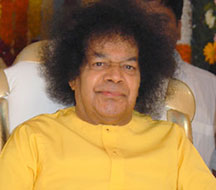
Exercise the power of Discrimination
00:01:50You should exercise discrimination, between the transient and the permanent. What is permanent? All of these things are like clouds which pass away in the wind. All our happiness, joys, pleasures and comforts are all passing clouds. In spite of all the passing clouds, the sun remains steady. We should see that our Buddhi, intellect, remains steady. It is only the intellect that helps us to develop our divinity. We say someone is an intellectual. We should see that we don't misuse the intellect. Mind may change. Mind is like a mad monkey. Body is like a water bubble. Don't follow the body, don't follow the mind. Follow the conscience. That is the nature of the intellect, follow it. When you follow the intellect, you are in the right path. The intellect stands as a witness for everything. When intellect is pure, unsullied and selfless, you don't need to fear anyone. Where do you find fear? Where there is a mistake, there is fear. When there is no mistake, you don't need to have fear.
-
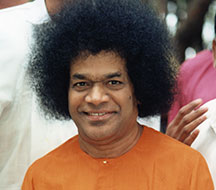
Discrimination power of man
00:04:19Our life will not move forward if we don't have any knowledge of Sastras or knowledge of experience.There was a pilgrim who was going to a village. On the way he came across a big stream. He doesn't know what is the depth of that stream.There were a blind man and a lame man sitting nearby under a tree.The lame man came to this pilgrim and enquired what are you thinking about and told him that he can certainly cross the river as it is not very deep.The blind man heard the lame man giving advise to pilgrim and told to that person, "Yes, my dear brother, you can cross the river as it is not deep" The pilgrim made some enquiry within himself. "This lame man could have never crossed the river with his legs, and how does he know the depth of this river and the blind man might have never saw the water, how can he tell me about the depth of the river?" He thought he will be getting into danger if he rely on the advice given by the lame man or the blind man and hence he turned back.This traveler is a very clever man. He can be compared to every human being who is a traveler along his life. Our life is like a big flow of river.The man who has no wisdom is the lame man.The one who has no experience is like a blind man. We should not lead our life by taking advice from people who have no wisdom nor experience. Unfortunately, today people are following the advice of persons who lack wisdom or experience. So it is necessary to do Sadhana which will give you some experience.They should not enter any path either as a lame person or as a blind person.Thyagaraja has said that, "Oh mind think of Rama knowingly. See and pray him knowingly." Therefore to get such experience, teachers must put their efforts and I hope that encouragement will be provided to students, to become ideal citizens of our country. I bless you all with these words and conclude my discourse.
Topics
- Analogies
- Atma
- Attachment
- Balvikas
- Bhaja Govindam
- Bhajans
- Body
- Character
- Company
- Compassion
- Culture
- Day to day
- Desire
- Devotees
- Devotion
- Dharma
- Discipline
- Doctors
- Education
- Faith
- Festivals
- Forbearance
- Gayathri
- God
- Gratitude
- Guru
- Health and healthcare
- HIS Life
- Human values
- India
- Karma
- Love
- Mahabharata
- Man
- Meditation
- Mind
- Music
- Musicians
- Namasmarana
- Nature
- Parents
- Philosophical concepts
- Pleasure and Pain
- Practice
- Ramayana
- Religion
- Sacrifice
- Sadhana
- Sai Organization
- Saints
- Sathya
- Science
- Senses
- Service
- Sevadal
- Shanthi
- Shirdi Baba
- Society
- Spirituality
- Students
- Thoughts
- Time
- Unity
- Upanishad
- Vedas
- Vices
- Yoga
- Youth
